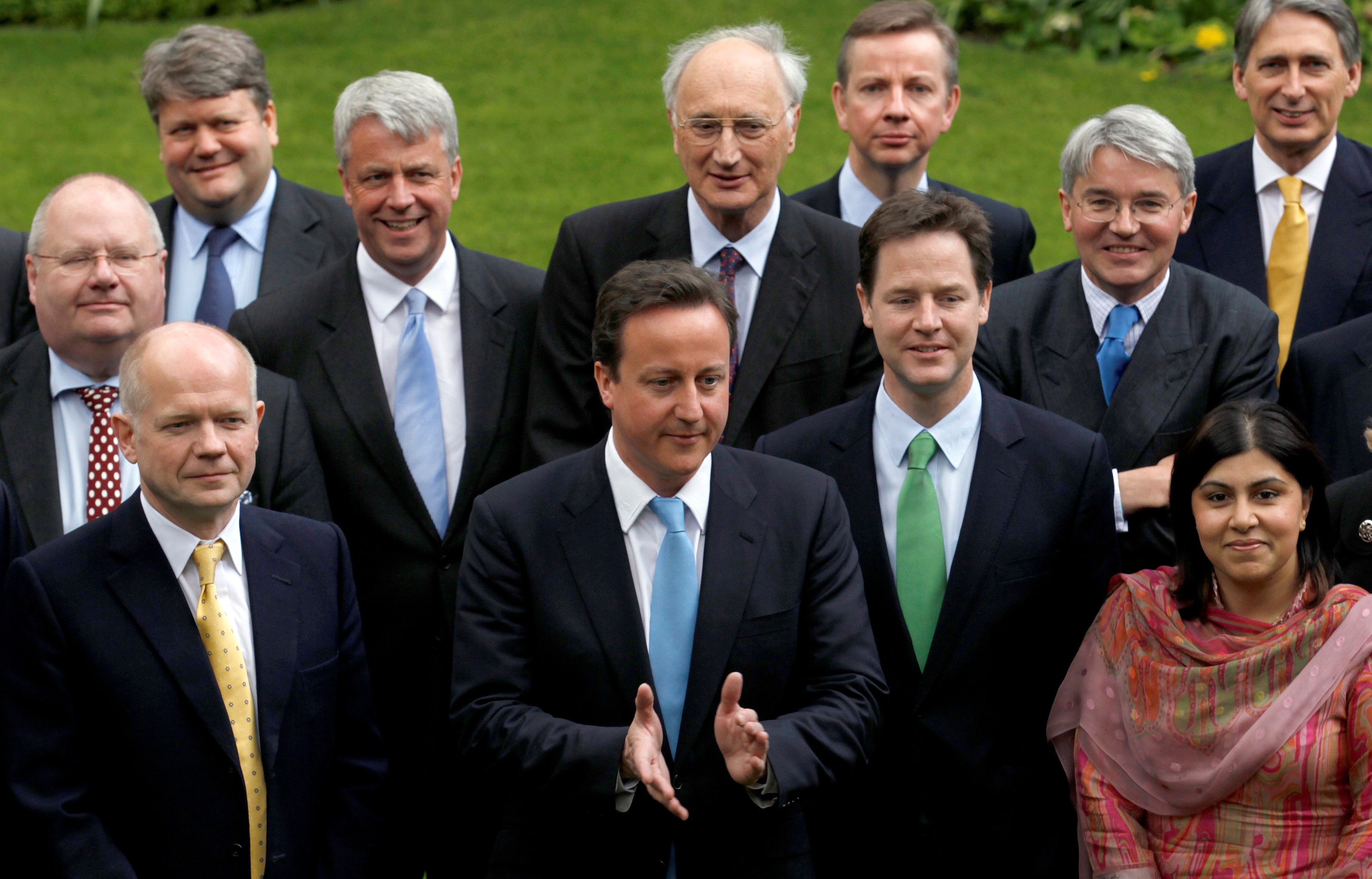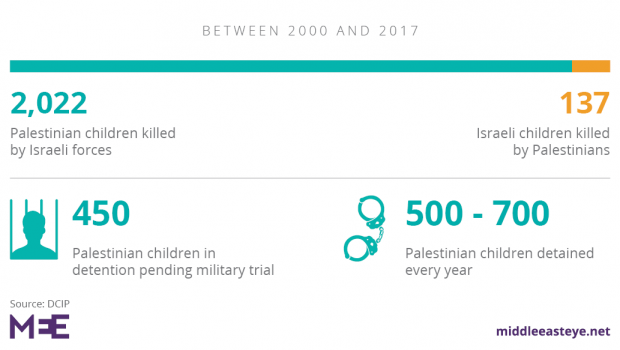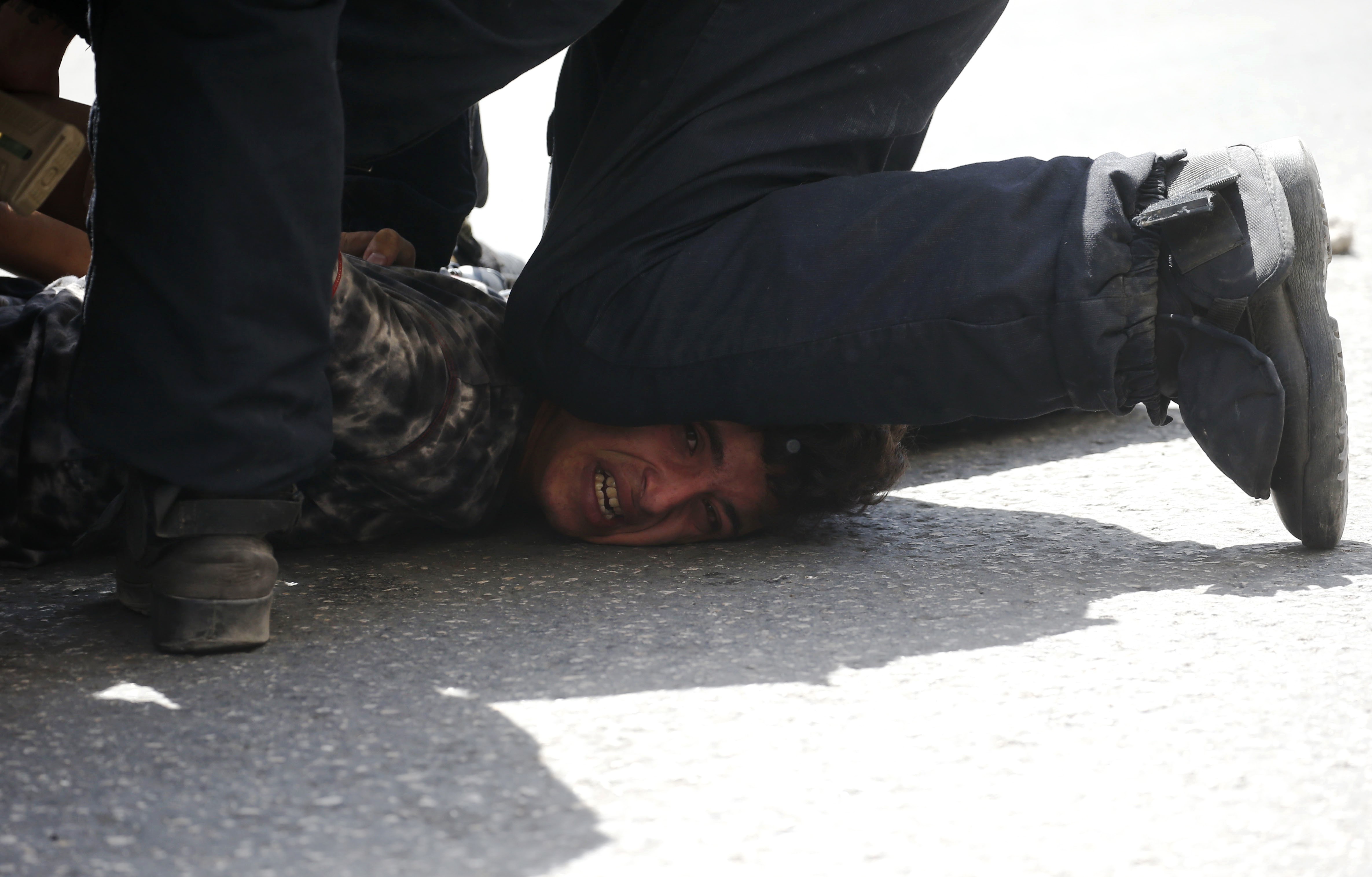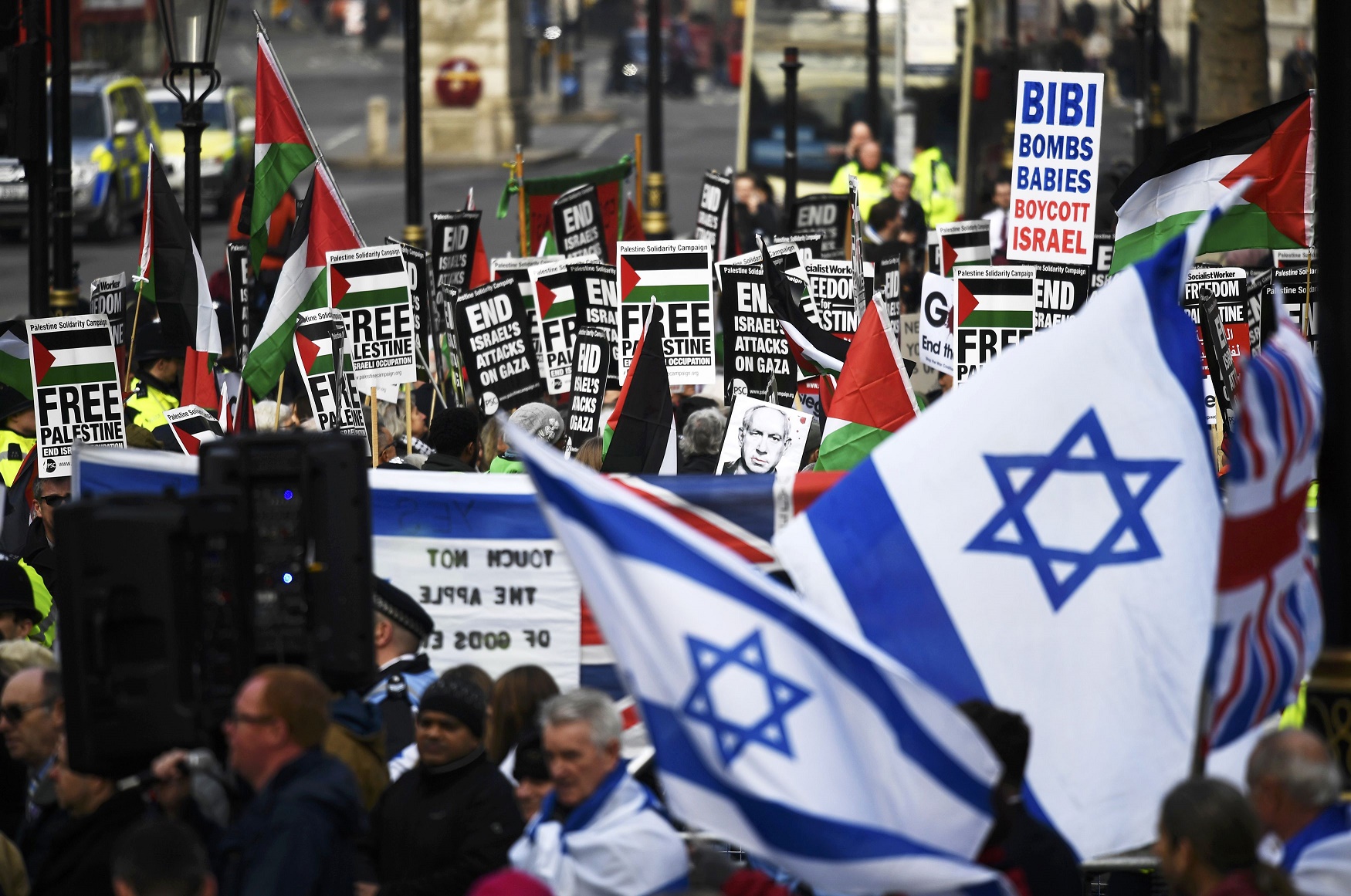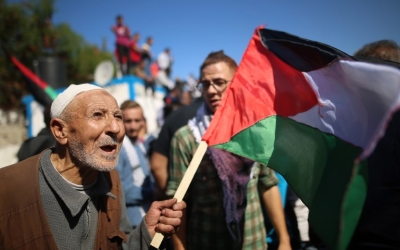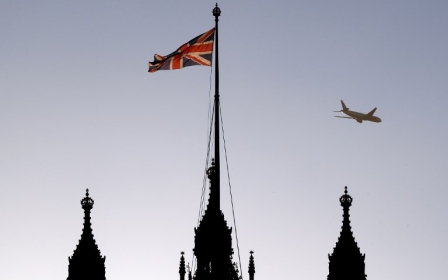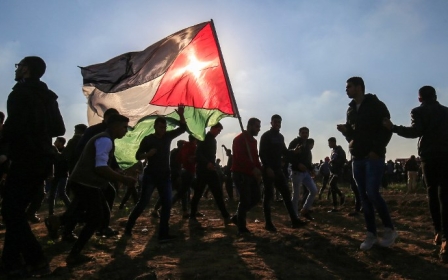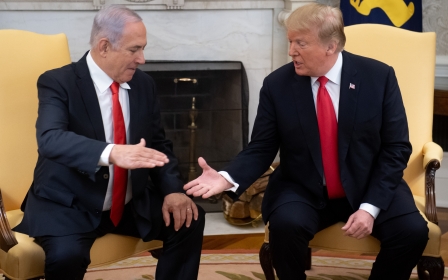Now is the time for Britain to recognise a Palestinian state
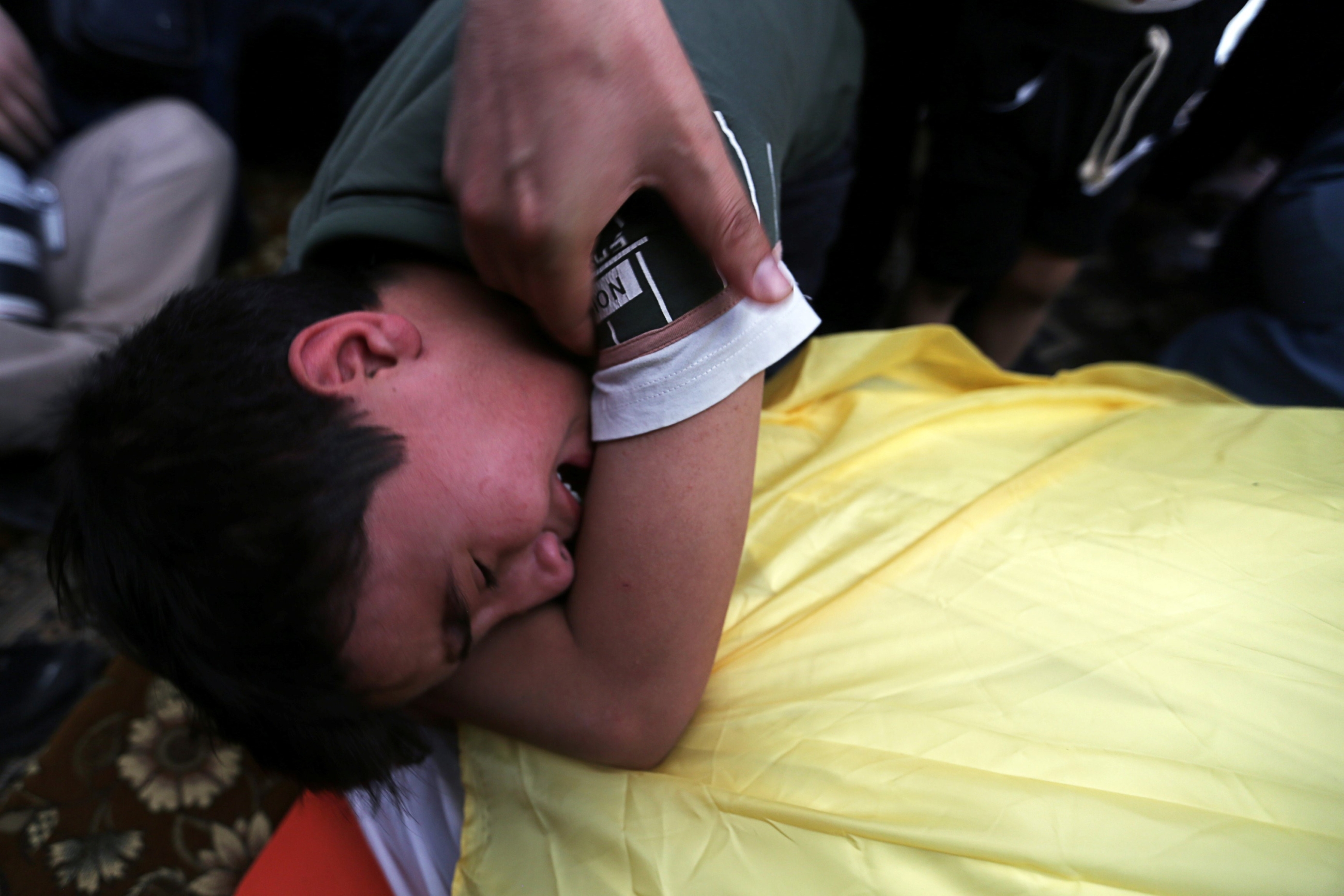
Watching the heartbreaking outburst of violence in Gaza this weekend, I realised that it’s been almost five years since I resigned as foreign office minister over the Israeli assault on Gaza in 2014.
Tragically, over the last five years the Palestinian-Israeli conflict has become far worse.
When it came to the conflict in Gaza, it seemed we simply shelved the values we held sacred
The cyclical violence continues, the Israeli occupation has become more entrenched, settlement building continues at a greater pace, the Israeli government has codified inequality in the form of the nation state law and the Trump presidency has effectively killed the peace process by unilaterally agreeing to Israeli demands that should have been part of a negotiated settlement.
In 2014, the facade of a "Middle East policy" was only too apparent to me and the impossibility of a "two-state solution" was obvious to many who still - at least - publicly declare support for it.
At the time of my resignation I had specific responsibility for human rights, the International Criminal Court and the United Nations. Britain, and I, prided ourselves on our stated British values as the defenders of human rights.
New MEE newsletter: Jerusalem Dispatch
Sign up to get the latest insights and analysis on Israel-Palestine, alongside Turkey Unpacked and other MEE newsletters
But when it came to the conflict in Gaza, it seemed we simply shelved the values we held sacred. More than 2,200 Palestinians and 67 Israelis were killed in the conflict in July that year. And Britain tragically failed to even find the words to condemn Israel's disproportionate actions.
Human rights positions, for which I had advocated as an activist, lawyer and politician, were dismissed with no rational "national interest" reason.
Israel not an exception
The world is full of both dictators and elected leaders, brutal regimes and appalling armies who persecute their own citizens; Israel is not an exception.
From Afghanistan to Iraq, Libya to Syria, Sudan to Sri Lanka, we have taken a stand against leaders and regimes that brutalise their own populations.
Britain has rightly responded with condemnation, and high-profile visits to support the persecuted, as David Cameron rightly did with the Tamils in Sri Lanka in 2013; it has offered support for independence movements, as we did in South Sudan; ostracism, as in the case of Pakistan and its exclusion from the Commonwealth during military coups; financial sanctions, such as those that lasted over a decade against Iran; invasion and war, as in Afghanistan and Iraq; regime change, as in Libya, and in Syria, as we keep repeating: "Assad must go, he is part of the problem not the solution."
We seem, at the very least, to find some words with which to show our displeasure, and yet when it relates to Gaza we cannot even find the words to condemn the daily massacre of civilians, starting each government statement with the robust defence of Israel’s right to defend itself.
I agree, Israel, like any other sovereign state, has a right to defend itself.
But as a member of the international community, that makes great efforts to be a part of International sporting and cultural occasions, Israel should make as great an effort to conduct itself within the parameters of humanitarian and international laws and norms.
Gaza's war crimes
During the crisis in 2014 a resolution was presented to the UN Human Rights Council in Geneva which condemned and called for a halt to the violence on both sides. It also asked for the establishment of a process of accountability at the end of the war for any war crimes committed by either side.
The resolution was in line with our values of accountability, no impunity for war crimes and support for international justice. We are a founding member of the International Criminal Court, and one of its key donors, and we believe in international organisations such as the UN.
And yet we abstained on the motion. We failed to live up to our own stated standards.
The resolution did pass, and a year later a UN report found credible the allegations of war crimes committed in 2014 by both Israel and Palestinian armed groups.
It reported that the "devastation and human suffering in Gaza was unprecedented and will impact generations to come".
For as long as we continue to say we support a 'two-state solution' but do nothing to bring it about we are complicit in this violence
Israel neither responded to repeated requests for information nor allowed access to Israel and the Occupied Territories, but the commission did conduct over 280 face-to-face interviews via Skype and video teleconference and considered 500 written submissions.
It concluded that "impunity prevails across the board for violations allegedly committed by Israeli forces both in Gaza and the West Bank", arguing that "Israel must break with its lamentable track record in holding wrongdoers to account".
The report was balanced in its findings, saying "accountability on the Palestinian side is also woefully inadequate". In abstaining, we failed in our commitment to accountability.
Political capital
Our argument went something like this: We know it’s wrong, and the loss of civilian life is tragic, but we have to be seen to hold the line and show support for Israel to bank goodwill for another day when we will use the influence gained to get Israel to shift its position on issues like settlements.
On one level this appears to be a good argument, and sensible diplomacy. But I have yet to witness it happening.
This lack of action and condemnation to preserve our “political capital” with the Israeli government, which we could use as leverage at a later date to make peace more likely, is in theory a sound position, but in practice it is a hypocritical betrayal of the Palestinian people.
This so-called political capital we have built over years of silence in the face of Israeli breaches of international laws, norms and protocols I have yet to see used. No action has been made on Israel's policy of detaining Palestinian children, on detentions without trial, on human rights abuses and on continued settlement building.
But our inaction provides the time and space for the conditions politically and physically to change so much that in effect there is no prospect of there ever being a “two-state solution”.
History repeats itself
This weekend, history repeated itself. The British government behaved in the same shameful way as it did in 2014. Prime Minister Theresa May betrayed our values in the same way that David Cameron did.
Once again, we failed fairness and shockingly - once again - sent out the message that we see little equivalence between Israeli lives and Palestinian ones.
Our policy is a betrayal of the Palestinian people as we allow the slow march towards a 'Greater Israel'
Twenty five Palestinians, including children, have died over the last couple of days. Four Israelis have done so. We should mourn them all. We should condemn violence that takes innocent lives.
I’ve always condemned violence on both sides.
Yet in his public statements Foreign Secretary Jeremy Hunt – who I believe is a decent man – condemned the attacks on Israel, yet failed to condemn the attacks on Gaza.
In a post-Brexit world, Britain should guard its brand and that must include our sense of decency and fair play, our commitment to fairness and human rights and our instinct to speak for the underdog.
If we only ever speak in ways which hold accountability for the violence committed by one side, if we only ever hold one party responsible for wrong, we are not an honest broker.
Dishonesty is not a good brand. We fail ourselves.
For as long as Gaza remains cut off from the West Bank and the rest of the world, it remains occupied. If the occupation persists, if no peace process exists, it is inevitable that there will be violence.
For as long as we fail to draw a clear distinction between an occupying power and occupied people, we fail to understand the reality of the conditions upon which we profess to build peace.
And for as long as we continue to say we support a "two state solution" but do nothing to bring it about we are complicit in this violence.
The writing on the wall
Our policy is a betrayal of the Palestinian people as we allow the slow march towards a “Greater Israel”.
The choking of East Jerusalem and Bethlehem, the wall of settlements and military zoning around them and throughout much of the West Bank, the disconnect between Gaza and the West Bank, all make obvious to any who visits, and I have, that a viable Palestinian state is a pipe dream.
It’s why I have no regrets over resigning from the government over Gaza.
The writing was on the wall in 2014. Since then, there has been no commitment to end the occupation or rebuild Gaza. There’s been no attempt to stop settlement building. No challenge to abuse of human rights. No peace process.
No honest brokers.
A Palestinian state now
In 2014, I sat in government watching the violence and urging action from the inside. As the government spokesperson in the Lords, I was not prepared to put my name to this failure of policy making.
Over the last five years, the UK government has done nothing to change this policy of inaction.
Nothing to resolve this issue. Nothing to stop Israel's changing of reality on the ground. Nothing to secure a viable, contiguous Palestinian state. Nothing to stop the cycle of violence.
When he was foreign secretary, William Hague said that if progress towards peace wasn’t made then we would have no option but to go back to consider the issue of bilateral recognition of Palestine.
This time has now come.
To refuse to do so is a denial of the right of the state of Palestine to exist. And such a denial should be as politically unacceptable as denying the right of the state of Israel to exist.
Both denials should be condemned in the strongest terms. No longer can we plausibly argue that recognition would damage the peace process. There is no peace process.
No longer can we hold onto an ineffective and implausible policy as a fig leaf to hide the shame of our failure.
The views expressed in this article belong to the author and do not necessarily reflect the editorial policy of Middle East Eye.
Middle East Eye delivers independent and unrivalled coverage and analysis of the Middle East, North Africa and beyond. To learn more about republishing this content and the associated fees, please fill out this form. More about MEE can be found here.



